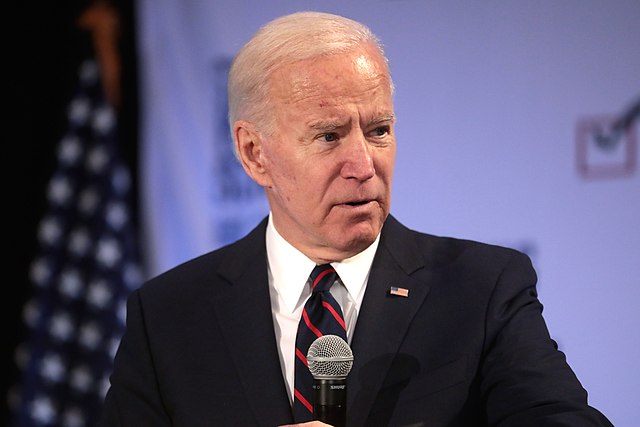
CV NEWS FEED // As the humanitarian crisis worsens in Afghanistan and congressional probes loom, more Democrats are pointing their fingers at President Joe Biden for allowing the country to fall so swiftly into radical Islamist hands.
In a televised address this week, Biden blamed the Taliban’s swift takeover of the country on Aug. 15 — two weeks ahead of a scheduled U.S. withdrawal — on both Donald Trump and the Afghan military’s unwillingness to fight.
But Jordain Carney reported for The Hill on Aug. 18 that Biden’s support on Capitol Hill has swiftly evaporated in a growing backlash against this explanation, leaving him with “few allies” in his party outside of House Speaker Nancy Pelosi and Senate Majority Leader Chuck Schumer. While the latter have issued talking points to Democratic legislators in an effort to rally behind Biden, some leading officials have already broken ranks.
Sen. Bob Menendez, D-NJ, who chairs the Senate Foreign Relations Committee, agreed with Biden that the Trump administration’s agreement with the Taliban was “wholly inadequate.” But he still blamed Biden for mishandling the U.S. withdrawal in a way that allowed the repressive militants to quickly displace the legitimate Afghan government, which had held power for 20 years since American troops liberated the country after 9/11.
“I am disappointed that the Biden administration clearly did not accurately assess the implications of a rapid U.S. withdrawal,” Menendez said.
Rep. Jim Langevin, D-RI, a senior member of the House Armed Services Committee, went even further by writing a bruising op-ed that called the pullout under Biden a “catastrophe,” saying he expected better after the Trump administration.
“At minimum, the Biden administration owed our Afghan allies of 20 years a real plan,” Langevin wrote. “They also owed it to our military service members and their families, particularly the men and women in uniform and their families who gave the ultimate sacrifice. Not to mention the women and girls of Afghanistan who are now experiencing a devastating new reality.”
For his part, Menendez has joined a growing chorus of Democrats in charge of congressional committees who have asked Biden administration officials to testify about their lack of preparedness for the Taliban coup. House Foreign Affairs Committee chairman Gregory Meeks, D-NY, his counterpart on the House side, was the first to make this invitation to the Biden administration.
Senate Intelligence Committee chairman Mark Warner, D-VA, said he would work with other committees in the congressional investigation to learn “why we weren’t better prepared for a worst-case scenario.”
Meanwhile, Senate Armed Services Committee chairman Jack Reed, D-RI, said he’ll focus in hearings on “what went wrong in Afghanistan and lessons learned to avoid repeating those mistakes.”
As the reality of losing Afghanistan in a way detrimental to U.S. interests under Biden settles into the national consciousness, other Democrats may have political reasons for ditching the president’s talking points on his exit strategy, insofar as they fear a more personal backlash from voters in the upcoming 2022 midterms.
Sen. Mark Kelly, D-AZ, facing a potentially tight reelection battle in a usually-red state next year, said “the rapidly deteriorating situation in Afghanistan reveals a failure to prepare.”
While most Americans have favored pulling out of Afghanistan in recent years, polls taken earlier this week as the Taliban established its new caliphate in Kabul have revealed that a majority now oppose the way the Biden administration did it. Beyond the humiliation and horror of seeing U.S. aircraft evacuate personnel in a sudden panic, with desperate Afghan allies falling to their deaths while clinging to planes departing from Hamid Karzai Airport, fears have surfaced that the repressive Taliban regime will once again establish Afghanistan as a haven for terrorist organizations like Al-Queda.
On Aug. 18, Biden’s average approval rating dropped 2 points from the preceding Thursday to 48 percent. According to Five Thirty Eight, the decline in Biden’s overall approval rating to its lowest this year stems at least partly from a decline in Americans’ approval of his handling of the Covid-19 pandemic that started even before the Afghan fiasco. But the current humanitarian crisis, with the Biden administration now struggling to evacuate tens of thousands of U.S. citizens and Afghan refugees from Kabul, seems to be driving further declines in the president’s popularity.
News reports from Afghanistan, including images of women beaten in the streets and ongoing gunfire in the capital, seem to be having an impact on voters of all persuasions. Sen. Tom Carper, D-DE, generally a staunch ally of the president, said the U.S. military’s departure should have been “carefully planned” to protect the women and girls most at risk under the Taliban’s repressive laws.
Photo credit: Gage Skidmore/Wikimedia Commons
